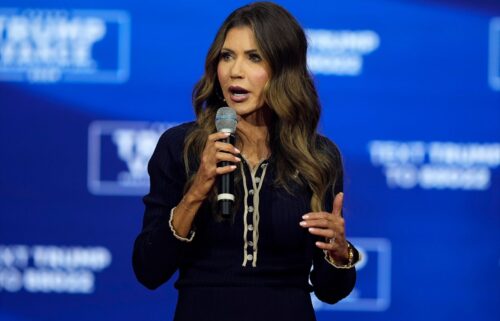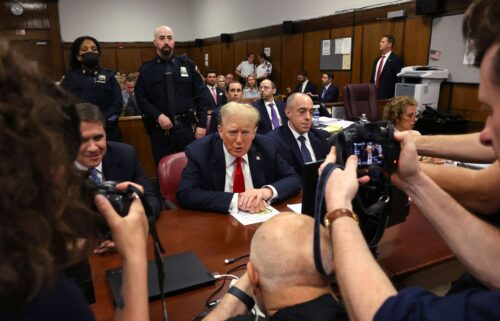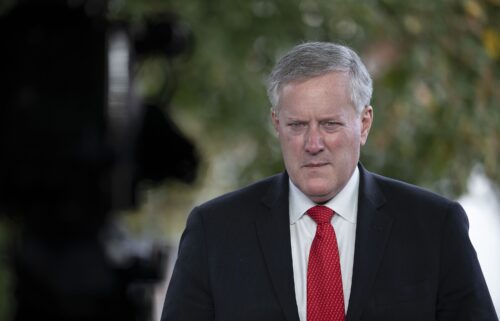Former Trump administration officials hold call to strategize against former boss’ efforts in 2022 and 2024

By Jake Tapper, Anchor and Chief Washington Correspondent
Around three dozen former Trump administration officials, disillusioned with their former boss and concerned about his impact on the GOP and the nation, held a conference call last Monday to discuss efforts to fend off his efforts to, in their view, erode the democratic process, several participants told CNN.
The only items the group seemed to agree upon in its first meeting, however, were that they’re not sure what their way forward should be, and that they are way behind the efforts of former President Donald Trump and his allies to set the stage for 2022, 2024, and beyond.
The highest-ranking participant was former White House chief of staff and retired Marine Gen. John Kelly, who told CNN that because of a prior commitment he was only able to “monitor” about 10 minutes of the call, which lasted about an hour.
Other participants included former Trump White House communications directors Alyssa Farah Griffin (now a CNN political commentator) and Anthony Scaramucci, former Homeland Security and counterterrorism adviser to Vice President Pence Olivia Troye, former Department of Homeland Security official Elizabeth Neumann, and former Director of the Cybersecurity and Infrastructure Security Agency Chris Krebs, among others. Stephanie Grisham, who first publicly discussed this group a couple of weeks ago on CNN’s “New Day,” was not on the call because she was sick with Covid-19, though she told CNN she is engaged with the group.
None of the names CNN has learned were involved with the call were particularly surprising; from Kelly to Farah to former national security adviser John Bolton, all have spoken publicly in one degree or another about their concerns about Trump’s leadership and fitness for the office. But one participant said that what struck many about the call was the sight of “a lot of faces I had not seen speaking publicly about why Trump is dangerous. People who had not previously spoken out who were now willing to speak out and share their perspective.”
Because the first meeting was held according to Chatham House Rules — the tradition at the British policy institute under which no attendee can publicly disclose the name of any others — the names of other participants remain unknown as of now.
Miles Taylor, the former DHS chief of staff who became a leading anti-Trump voice after writing an op-ed and book as “Anonymous,” helped lead the call and described participants as “overflowing with ideas” on how to be most effective. They ranged from “shining a light” on Trump’s corporate contributors to targeting for defeat in the primary or general election each individual Trump has endorsed for state and local races, although Kelly is reluctant to do anything that involves specifically endorsing any candidate.
“We’re still trying to figure out what it is” that we want to do, one participant told CNN. “Outcomes are key.” This individual said there was unanimity on the call, from those who spoke, that “this cannot just be a professional trolling operation, putting out ads like the Lincoln group.” The Lincoln Project was a group of so-called never-Trump GOP consultants who banded together to oppose the 45th President’s reelection, often running ads in the Washington, DC, area targeted to Trump.
Taylor concurred. “We all agreed passionately that letters and statements don’t mean anything,” he told CNN. “The two operative words are ‘electoral effects.’ How can we have tangible electoral effects against the extremist candidates that have been endorsed by Trump?”
If this unofficial group — which has no name, membership, or specific goals as of now — hopes to have any impact, it needs to act quickly. From coast to coast, Trump is actively supporting candidates who support his lies that the 2020 presidential election was stolen and are seeking to replace both Democrats and conservative Republicans who followed the law, the US Constitution, and the facts regarding the election.
Georgia Secretary of State Brad Raffensperger, for example, is facing a Trump-endorsed primary challenger in GOP Rep. Jody Hice, a proponent of the former President’s falsehoods about the 2020 presidential election. Trump endorsees could enjoy his fundraising support, attention from the media spotlight he can shine on them, and a chorus of praise from those in conservative media who are often more allegiant to Trump and his supporters than to facts.
Bolton, who left the White House in September 2019 and became a harsh critic of Trump’s fitness for office, was not on the call, he told CNN. But Bolton’s top aide, Sarah Tinsley, joined to share some of the polling information the John Bolton super PAC has been collecting that suggest Trump’s hold on the GOP is weakening. Tinsley presented four slides from a pending release, the super PAC’s fourth such poll, suggesting Trump’s influence is declining in terms of the power of his endorsement and his influence in candidate recruitment. Tinsley said the polling shows Trump’s favorability is declining with registered Republicans and right-leaning independents. (The data seems to contradict public polling such as a November 2021 Marquette University Law School poll in which 60% of Republicans say they would like Trump to run for president in 2024, and 73% say they see him favorably.)
Even if that trend were true, the difficult question for the group going forward is what to do. One individual on the call said he’d be happy never even mentioning Trump’s name in whatever their efforts end up being; he wanted to focus on a commitment to democracy.
Kelly has given speeches avoiding Trump as a general subject, though it’s impossible to ignore the context when he discusses the need for the American people “to look harder at who we elect,” as he told Scaramucci during a public discussion in June 2020. “I think we should look at people that are running for office and put them through the filter. What is their character like? What are their ethics?”
Putting such imperatives into practice will likely be easier said than done.
There are other challenges: the politics of individual members of the group run today’s conservative gamut politically, from vaguely centrist to paleo-conservative. Moreover some of the participants have criticized each other in previous years. When Taylor finally outed himself in October 2020 as the anonymous “senior administration official” of the New York Times op-ed, for example, Farah tweeted, “I rolled my eyes so hard I nearly tipped backwards.”
But Troye said there was “something powerful about the fact that not everyone on this call was friends. Whatever history there has been, they put that aside.”
Another question for this group will also be how much — if at all — to challenge efforts to make it harder to vote enacted by GOP-led state legislatures — measures inspired at least in part by Trump’s election lies but also supported by Republicans who have dismissed those lies, like Raffensperger.
The group is talking about holding another call later this week.
The-CNN-Wire
™ & © 2022 Cable News Network, Inc., a WarnerMedia Company. All rights reserved.




